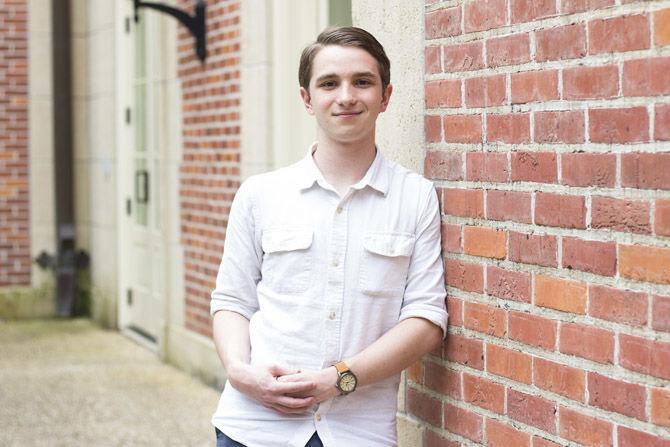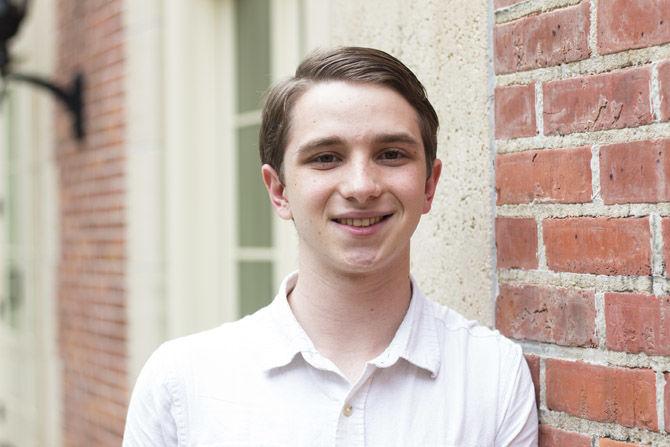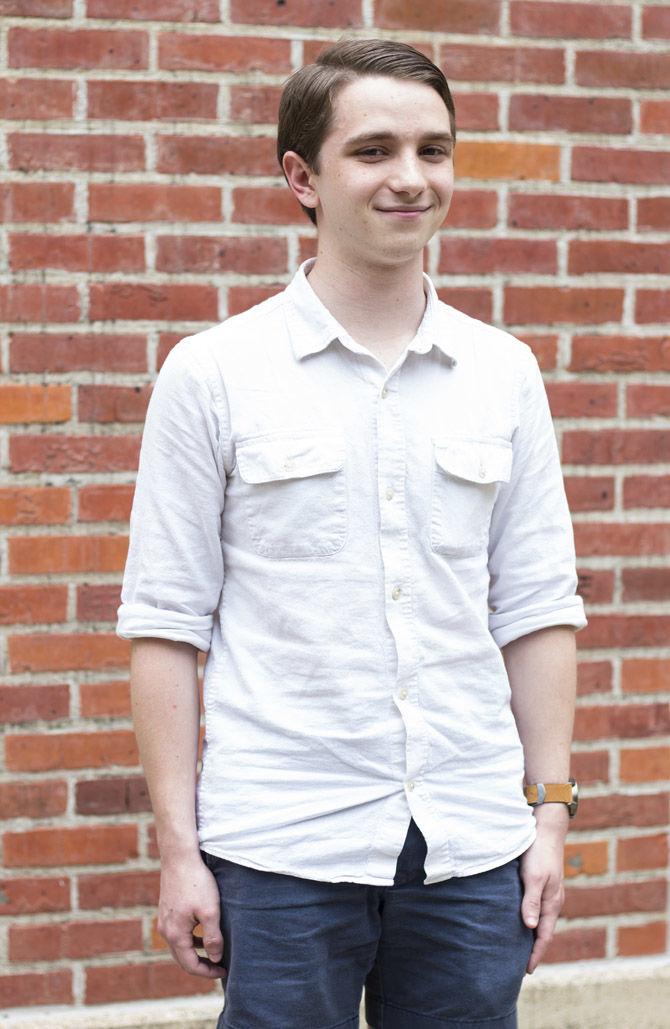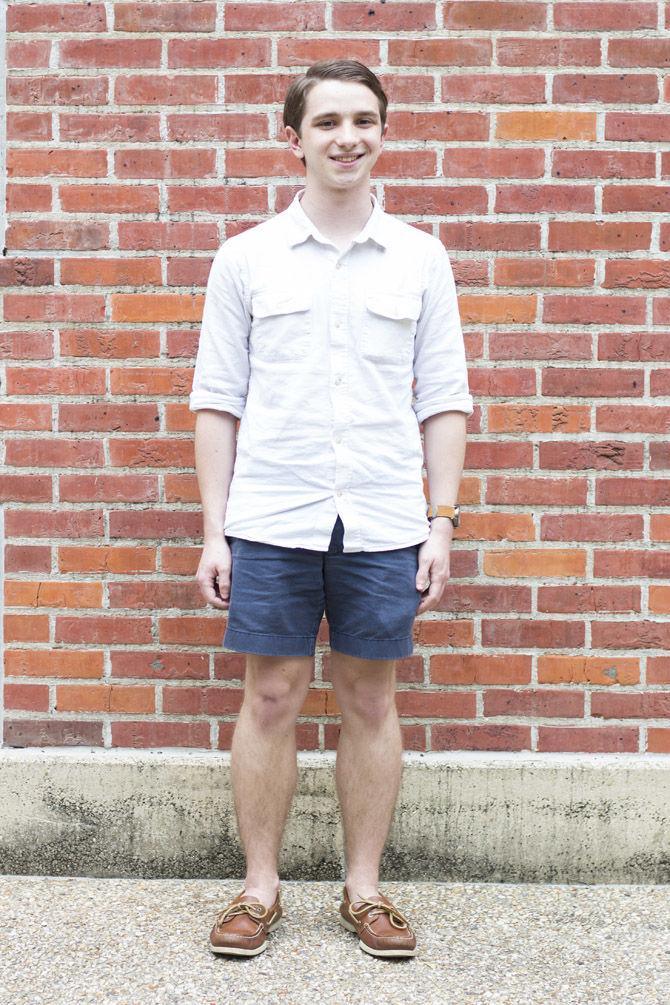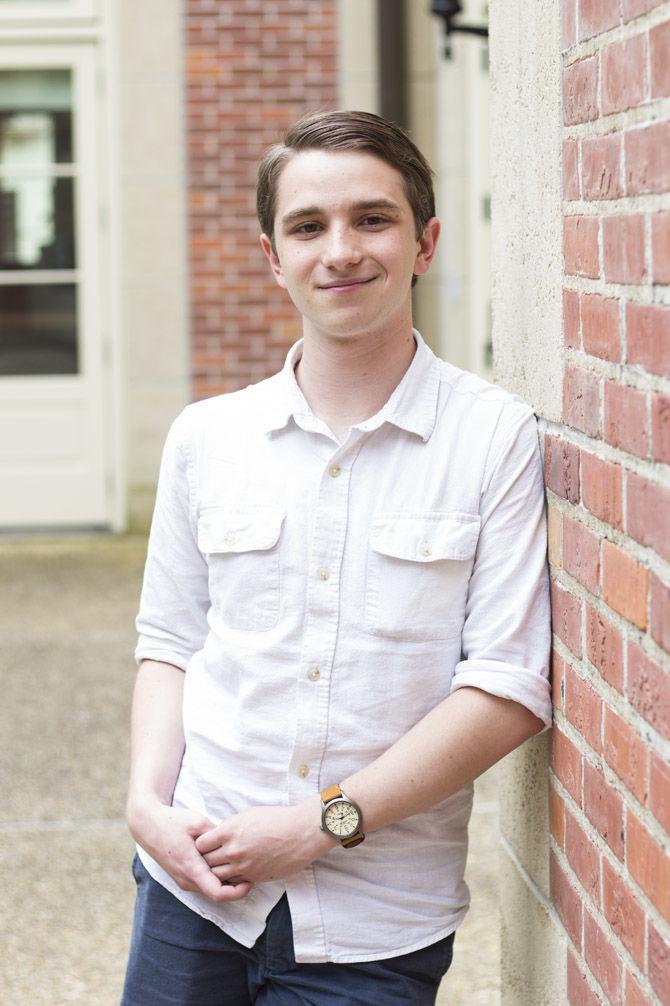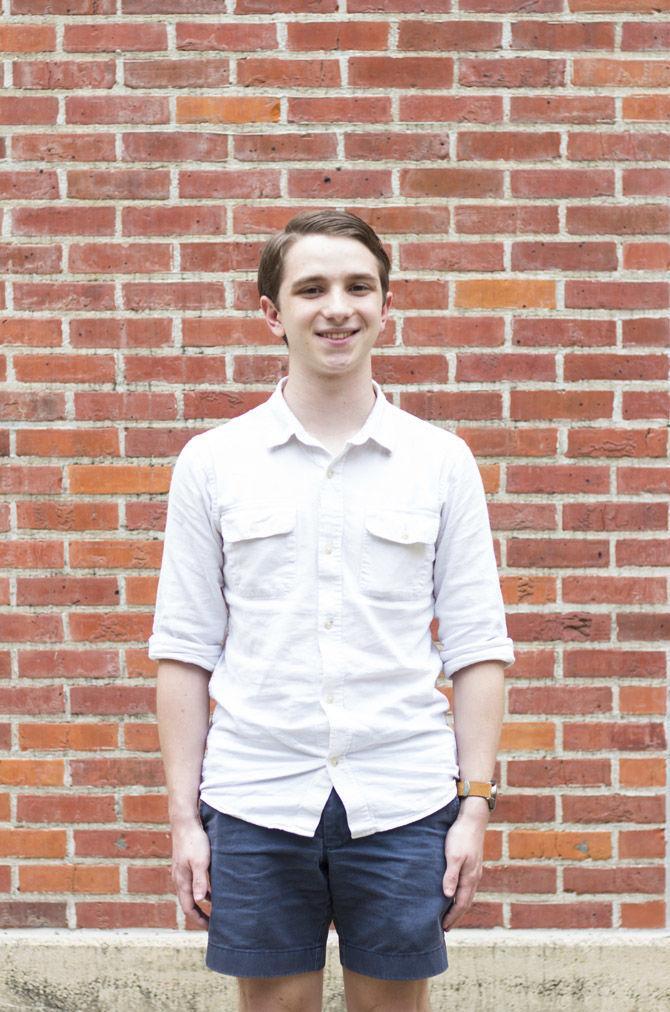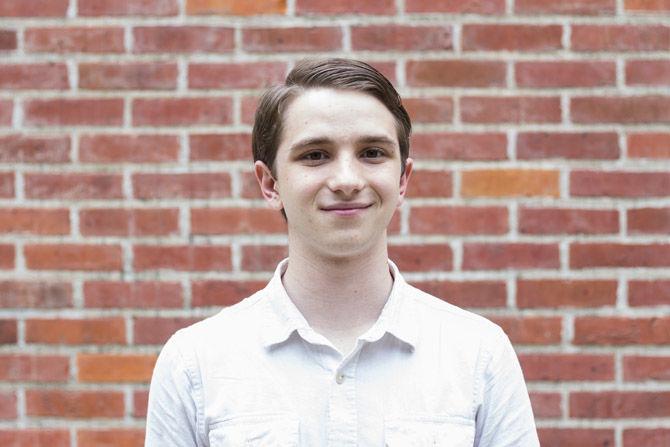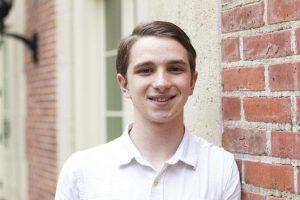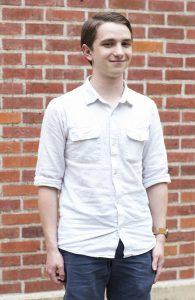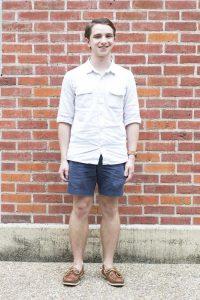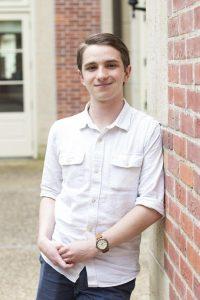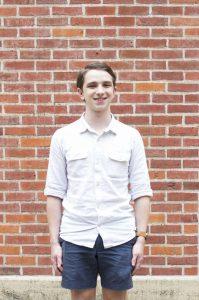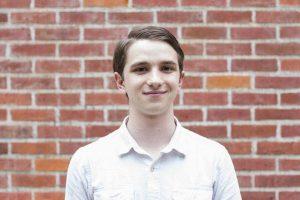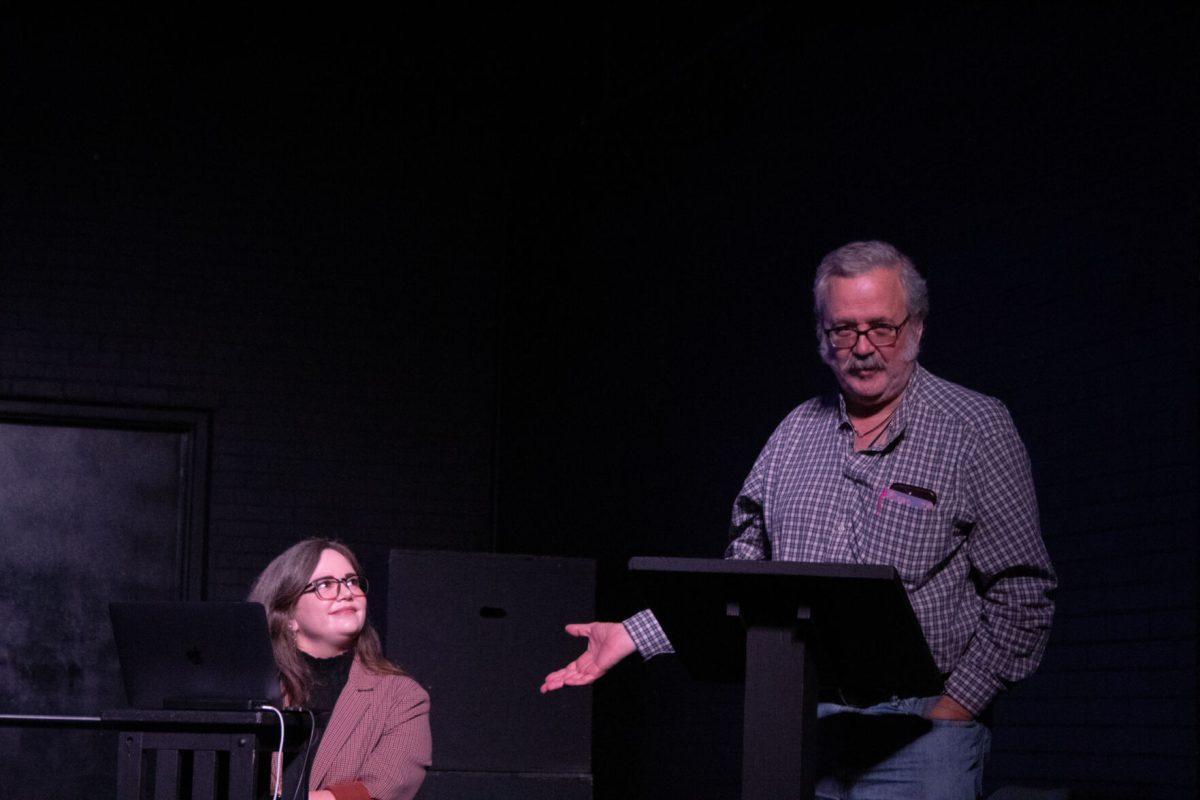When Corey Matyas was 7, he taught himself how to code using a book he bought with birthday money. He thought it was a normal thing for kids his age. When Matyas was 13, he knew how to use power drills and lock picking sets. By the time he was in high school, he had nearly burned down the school’s chemistry lab by accident when boiling sulfuric acid. And college definitely hasn’t slowed him down.
Matyas, now a physics and math sophomore at the University, has spent the year making a revolutionary computer software program for testing all sorts of quantum optical projects—a feat that made him LSU’s 32nd Goldwater Scholar on March 30.
Matyas is now one of just 211 Goldwater Scholars for 2018, which had around 1,280 student nominations. The selective award is one of the highest available honors for undergraduates in science, technology, engineering and mathematics. Recipients of the award get funding of around $7,500 for research in the fields of natural science, mathematics or engineering.
“I kind of had the idea, what if we could get the computer to try out a bunch of different materials then figure out the thicknesses and see which one worked best,” Matyas said. “And so, using supercomputers and a bunch of code, that’s more or less what I did.”
Making the program took him about 10 weeks—around eight hours a day, often working through dinner. He fine-tuned it for research in nanophotonics, to test the best types of materials and the best thicknesses of these materials for work in multilayer photonic structure, helped by his mentor Georgios Veronis, associate professor in the School of Electrical Engineering and Computer Science and the Center for Computation and Technology.
The program, as Matyas described it, takes random materials and then passes on the most suitable materials in a testing pattern that mimics genetic evolution. Matyas said the program might even be helpful in discovering some sort of larger pattern.
“I guess kind of the significant thing is you don’t normally expect trying random stuff to work. But it did,” Matyas said. “Which really kind of gives us some insight, like maybe designing these things isn’t quite as mysterious as we thought it might be, maybe there’s some patterns in here. And so, this gives us the option going forward of, ‘Well, what if we can look for those patterns, what if we can figure what materials work well together.’”
As impressive as the program is, Matyas didn’t really expect to get the Goldwater Scholarship because of it, and he’s still finding it hard to believe that he won, saying that the news was still settling in. He waited anxiously the entire day results were announced, only to find out that he’d won from social media.
Matyas said, “I found out from Twitter before I found out from my email, honestly. Because my email only refreshes every 15 minutes, so I just missed it.”
Matyas hopes to use his funding for travel grants, to go to conferences, but hasn’t made solid plans yet. He does know that he’s going to keep doing more research, and plans to represent his findings at several conferences in fall. Right now, his software is only being used by around four graduate students. Matyas plans on eventually open-sourcing it, so it’s available for more widespread use.
In his two years left as an undergraduate, Matyas wants to finish up the requirements for his majors, so he can go to graduate school and get his Ph.D. in physics. Matyas gives credit to the Rodger Hadfield Ogden Honors College and the University as significant factors in his success so far.
“I was able to get right into lab freshmen year, doing real work,” Matyas said. “I’m the second author on one paper, did a poster presentation, got a first author coming up soon. These are things that some people don’t do [until] graduate school and I’m able to do them here at LSU.”
Some of that encouragement comes in the form of office space. Matyas has his own cubicle in Nicholson Hall, decorated with a globe and a whiteboard that’s usually filled with quantum physics equations, but he doesn’t really depend on location or time for his best research ideas, sometimes working late into the night.
“When I say my lab is a laptop and pad of paper, I’m serious,” Matyas said. “I’m not sure that I could work in a lab with machines, because I get my best work done at four in the morning. They don’t like giving undergrads keys to get in at four in the morning to work with expensive equipment.”
LSU student named Goldwater scholar for dedication to research
By Rachel Mipro
April 17, 2018
LSU physics sophomore and Goldwater Scholar Corey Matyas stands outside of The French House, on Monday, April 09, 2018.
More to Discover


